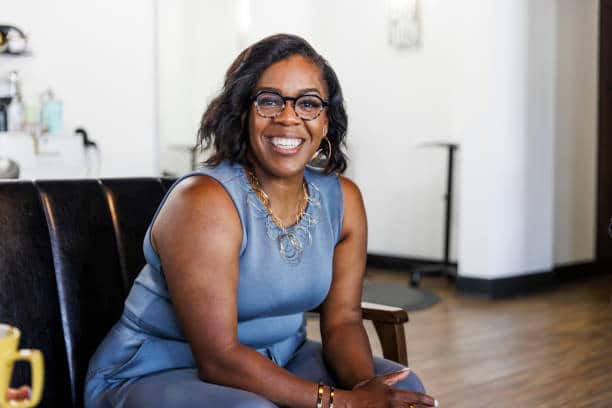By Jasmine Smith
BlackDoctor
Reprinted – by Texas Metro News

For the first time in a decade, the American Heart Association (AHA) and the American Stroke Association (ASA) updated their guidelines, providing an in-depth look at new preventative measures and previously overlooked factors such as socioeconomic status, gender-specific risks, and lifestyle. BlackDoctor.org spoke with Donna Newsome, M.D., a vascular neurologist at Texas Health Presbyterian Hospital Plano with over 20 years of experience to discuss the shift in understanding stroke risks and the strategies individuals and healthcare providers can adopt to reduce these risks.
Why New Guidelines?
Since the last update, researchers have uncovered a range of lifestyle and social factors that contribute to stroke risk beyond traditional health markers.
“Since COVID happened, we also realized there are other aspects of life that maybe 10 plus years ago were missed because they didn’t realize the overall impact on our health. Things like socioeconomic situations, women’s health, and sleep deprivation all factor in,” Dr. Newsome shares.
The new guidelines are a formal acknowledgment of these insights, providing both patients and practitioners with a more comprehensive approach to stroke prevention that goes beyond the basics of diet and exercise.
“While factors like high blood pressure, cholesterol, diabetes, and physical activity have long been known to influence stroke risk, there is now a greater awareness of how elements such as sleep quality, economic stability, and gender-specific factors play into health outcomes,” Dr. Newsome notes.
Key Takeaways from the New Guidelines
1. Expanded Focus on Women’s Health
The guidelines now recognize that certain gender-specific health factors, particularly concerning women’s reproductive health, can influence stroke risk. Women who are pregnant or considering pregnancy, for example, face unique risks. Hormonal changes from pregnancy or contraception, the onset of menopause, and conditions like preeclampsia can contribute to elevated stroke risk. By formally addressing these risks, the guidelines encourage healthcare providers to assess and discuss stroke prevention specifically tailored to women.
“We’ve had these different studies, but they tend to focus on men. Now, finally, we’re looking at women and their specific needs and risks,” Dr. Newsome says.
2. Addressing Socioeconomic and Lifestyle Factors
Dr. Newsome also highlights how factors like socioeconomic status and sleep deprivation contribute to stroke risk. These aspects are now included in the guidelines, suggesting that they are just as critical to stroke prevention as traditional health metrics.
“Most doctors routinely check blood pressure and cholesterol levels, and screen for diabetes, but there are some other things they don’t focus on as much,” Dr. Newsome notes. “They can ask questions like, ‘Are you getting enough sleep?’ About 30 percent of adults don’t get enough quality sleep. Adults need at least seven uninterrupted hours of sleep per night.”
3. Encouraging Lifestyle Changes
The guidelines also recommend a Mediterranean-style diet, regular exercise, and adequate sleep as essential components of stroke prevention. These lifestyle choices, while previously understood, are now strongly emphasized.
A Mediterranean diet has been shown to lower stroke risk. “The goal is to reduce processed foods and sugar…,” Dr. Newsome adds. “The main things are incorporating more fruits, vegetables, nuts, and healthy fats while reducing red meat and processed foods. Lean proteins like chicken and fish are recommended, along with olive oil. It’s not saying never go to a fast food restaurant or have pizza, but do these things in moderation. If you’re eating a lot of sweets and sodas, try to keep it to a minimum.”
Regular exercise is also key. “We should aim for at least 150 minutes of moderate exercise or 75 minutes of vigorous exercise weekly,” Dr. Newsome shares.
Recognizing Stroke Symptoms: The BE FAST Acronym
Recognizing stroke symptoms early is crucial. While the traditional FAST acronym (Face, Arm, Speech, Time) remains essential, the BE FAST model includes additional indicators like Balance and Eyesight, offering a more complete picture of stroke symptoms:
- Balance: Sudden loss of balance or coordination
- Eyes: Sudden vision changes or loss
- Face: Drooping or numbness on one side of the face
- Arm: Weakness or numbness in one arm
- Speech: Slurred speech or difficulty speaking
- Time: Urgency in calling for help
Timely intervention can make a crucial difference in stroke outcomes, underscoring the importance of awareness for both individuals and caregivers.
“Remember, 80 percent of strokes are preventable. If someone told you there was an 80 percent chance of winning the lottery, you’d probably play every day. So, if there’s an 80 percent chance of preventing a stroke, you’d think people would do what it takes to avoid one,” Dr. Newsome notes. “There’s so much control we have. If we can get people to understand they’re in control of their health, that’s a game changer.”









